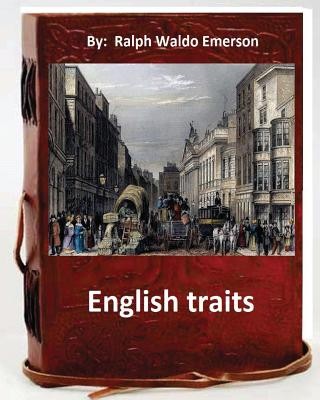
- We will send in 10–14 business days.
- Author: Ralph Waldo Emerson
- Publisher: CreateSpace Independent Publishing Platform
- ISBN-10: 1536860425
- ISBN-13: 9781536860429
- Format: 20.3 x 25.4 x 0.6 cm, minkšti viršeliai
- Language: English
- SAVE -10% with code: EXTRA
Reviews
Description
Ralph Waldo Emerson (May 25, 1803 - April 27, 1882), known professionally as Waldo Emerson, was an American essayist, lecturer, and poet who led the Transcendentalist movement of the mid-19th century. He was seen as a champion of individualism and a prescient critic of the countervailing pressures of society, and he disseminated his thoughts through dozens of published essays and more than 1,500 public lectures across the United States. Emerson gradually moved away from the religious and social beliefs of his contemporaries, formulating and expressing the philosophy of Transcendentalism in his 1836 essay, "Nature". Following this ground-breaking work, he gave a speech entitled "The American Scholar" in 1837, which Oliver Wendell Holmes Sr. considered to be America's "Intellectual Declaration of Independence".Emerson was born in Boston, Massachusetts, on May 25, 1803, son of Ruth Haskins and the Rev. William Emerson, a Unitarian minister. He was named after his mother's brother Ralph and the father's great-grandmother Rebecca Waldo. Ralph Waldo was the second of five sons who survived into adulthood; the others were William, Edward, Robert Bulkeley, and Charles. Three other children-Phebe, John Clarke, and Mary Caroline-died in childhood. Ralph Waldo Emerson was of entirely English ancestry all of which had been in New England since the early colonial period
- Author: Ralph Waldo Emerson
- Publisher: CreateSpace Independent Publishing Platform
- ISBN-10: 1536860425
- ISBN-13: 9781536860429
- Format: 20.3 x 25.4 x 0.6 cm, minkšti viršeliai
- Language: English English
Ralph Waldo Emerson (May 25, 1803 - April 27, 1882), known professionally as Waldo Emerson, was an American essayist, lecturer, and poet who led the Transcendentalist movement of the mid-19th century. He was seen as a champion of individualism and a prescient critic of the countervailing pressures of society, and he disseminated his thoughts through dozens of published essays and more than 1,500 public lectures across the United States. Emerson gradually moved away from the religious and social beliefs of his contemporaries, formulating and expressing the philosophy of Transcendentalism in his 1836 essay, "Nature". Following this ground-breaking work, he gave a speech entitled "The American Scholar" in 1837, which Oliver Wendell Holmes Sr. considered to be America's "Intellectual Declaration of Independence".Emerson was born in Boston, Massachusetts, on May 25, 1803, son of Ruth Haskins and the Rev. William Emerson, a Unitarian minister. He was named after his mother's brother Ralph and the father's great-grandmother Rebecca Waldo. Ralph Waldo was the second of five sons who survived into adulthood; the others were William, Edward, Robert Bulkeley, and Charles. Three other children-Phebe, John Clarke, and Mary Caroline-died in childhood. Ralph Waldo Emerson was of entirely English ancestry all of which had been in New England since the early colonial period


Reviews